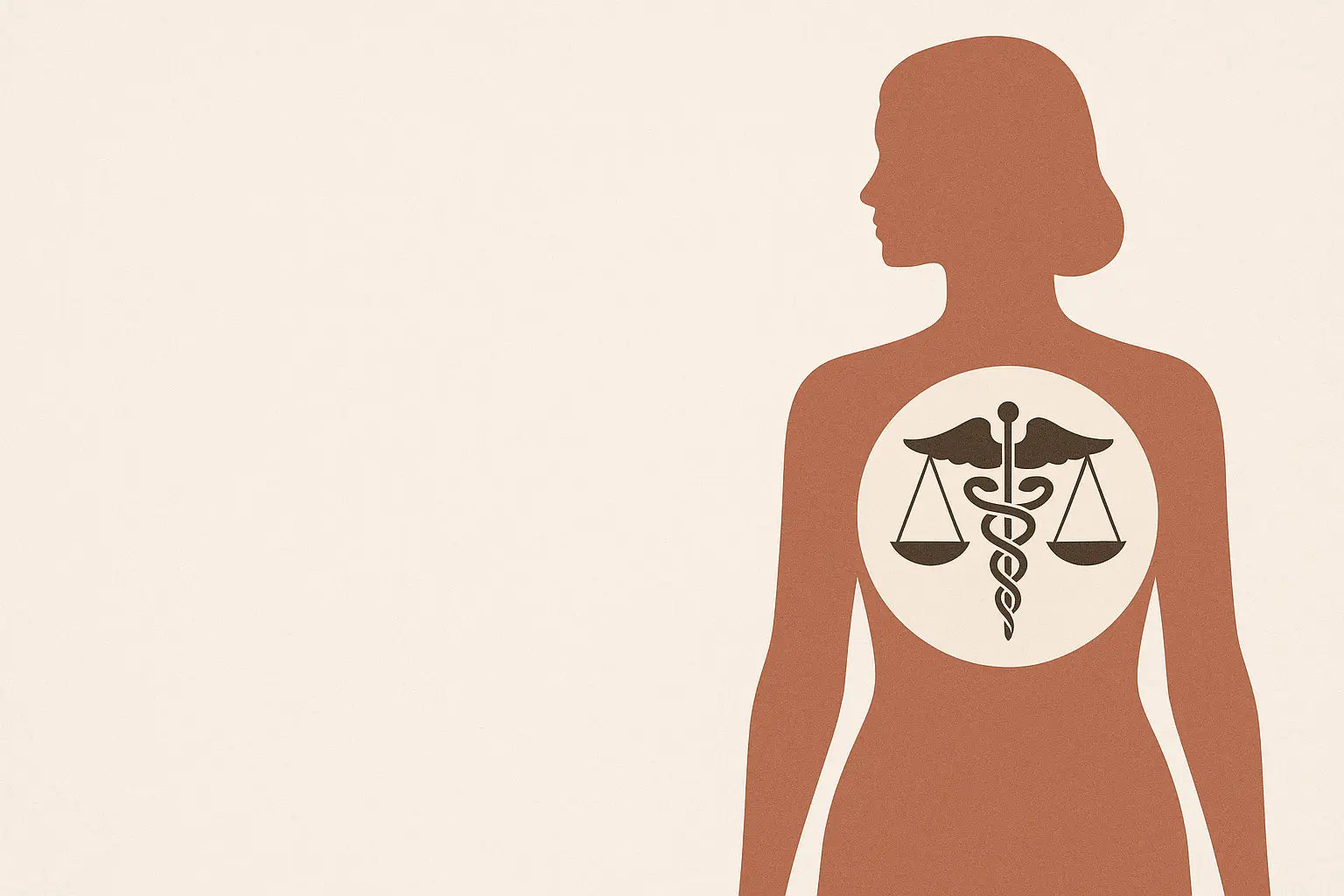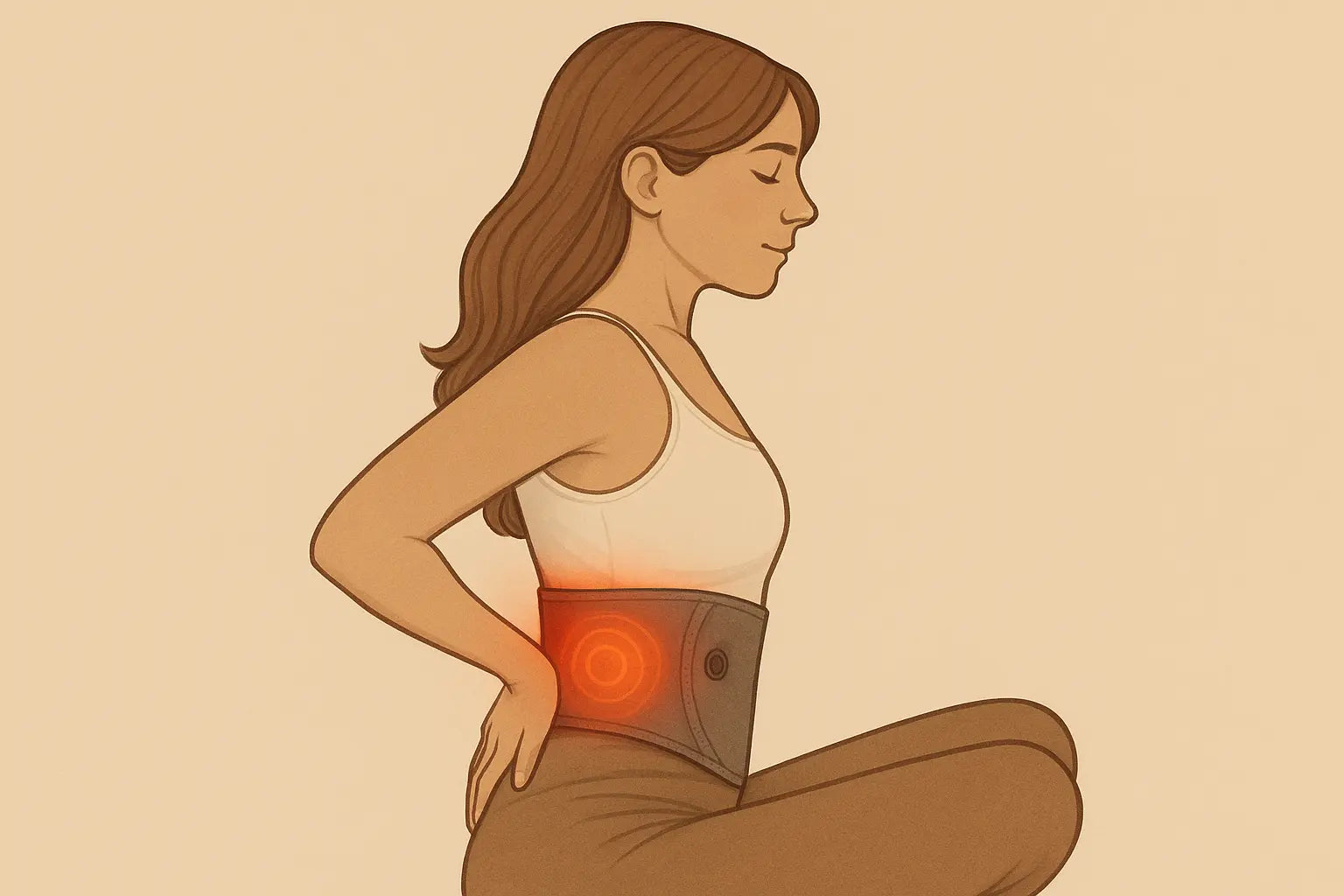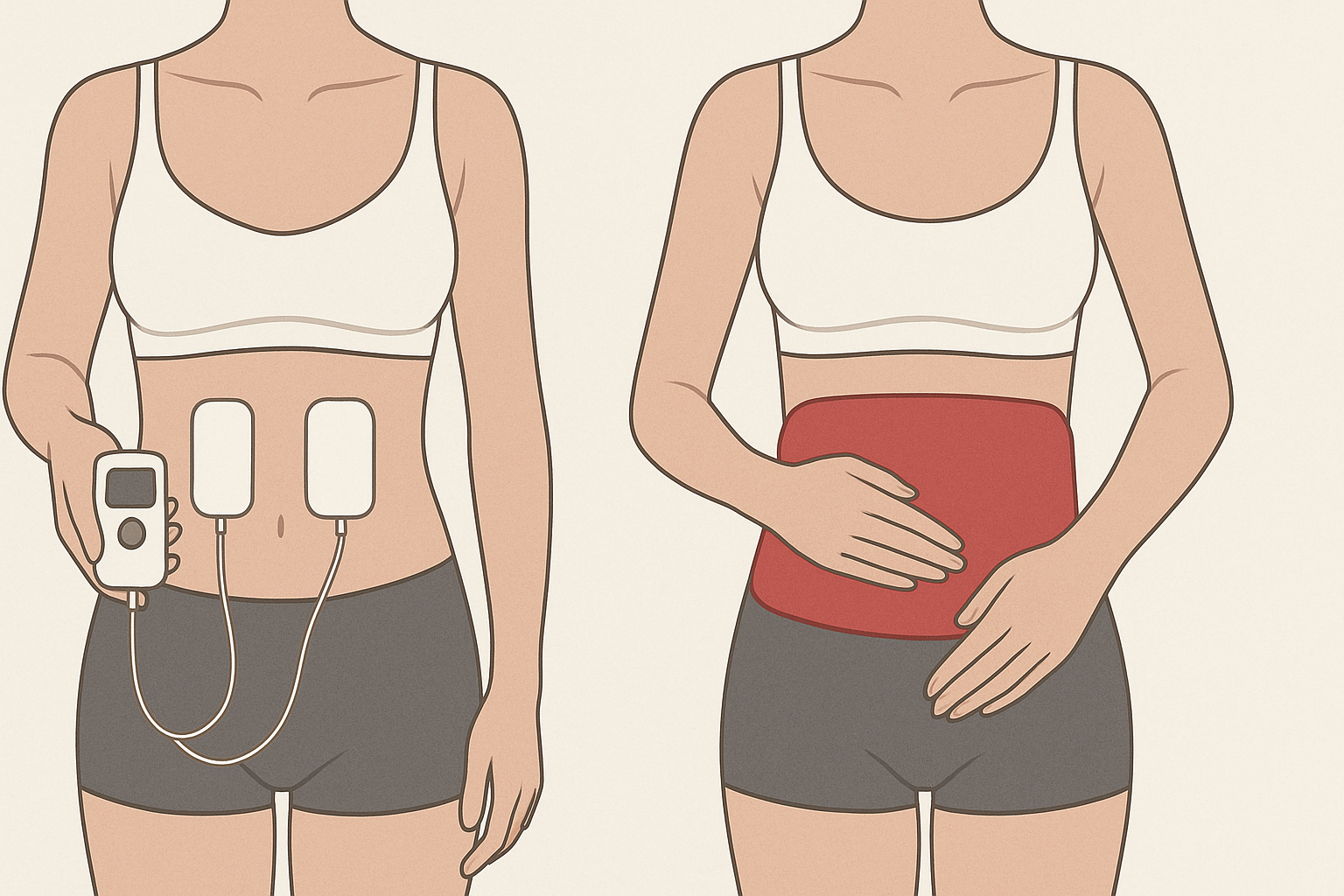Hormonal balance plays a critical role in regulating numerous physiological processes, especially in women, where hormones like estrogen, progesterone, and luteinizing hormone (LH) have a significant impact on the menstrual cycle and reproductive health. Disruptions in the intricate balance of these hormones can have far-reaching consequences that affect not only the menstrual cycle but also a woman's cardiovascular, metabolic, mental, and skeletal health. As a medical professional, it is crucial to recognize the systemic nature of hormonal imbalances and their potential long-term effects. In this article, we will explore the lasting implications of hormonal imbalances and the clinical considerations for their management.
1. Reproductive and Menstrual Health
The most immediate and perhaps most well-known impact of hormonal imbalances is on a woman's reproductive system, particularly in relation to menstrual function and fertility.
a. Irregular Menstrual Cycles and Amenorrhea
- Pathophysiology: Hormonal imbalances, particularly involving estrogen and progesterone, can disrupt the regularity of the menstrual cycle. When there is insufficient production of progesterone or an excess of estrogen (unopposed estrogen), the endometrial lining may not shed properly, leading to irregular menstruation or amenorrhea (absence of menstruation). Conditions such as polycystic ovary syndrome (PCOS), hypothalamic amenorrhea, and thyroid disorders can all cause such irregularities.
- Clinical Consequences: Long-term menstrual irregularities can result in endometrial hyperplasia, increasing the risk of endometrial cancer. Additionally, amenorrhea can affect fertility, delaying conception or leading to infertility if left untreated.
b. Polycystic Ovary Syndrome (PCOS)
- Pathophysiology: PCOS is a common endocrine disorder characterized by an imbalance of androgens, insulin resistance, and disrupted menstrual cycles. The hyperandrogenism seen in PCOS leads to the development of ovarian cysts, anovulation, and menstrual irregularities.
- Clinical Consequences: Beyond fertility issues, PCOS significantly increases the risk of long-term health conditions such as type 2 diabetes, cardiovascular disease, and metabolic syndrome. Persistent anovulation without intervention may lead to unopposed estrogen stimulation of the endometrium, further raising the risk of endometrial carcinoma.
c. Endometriosis
- Pathophysiology: Although the exact etiology remains unclear, endometriosis is believed to be linked to estrogen dominance and inflammatory processes. The presence of endometrial-like tissue outside the uterus leads to chronic pelvic pain and menstrual irregularities.
- Clinical Consequences: Endometriosis can have profound impacts on a woman's quality of life, fertility, and long-term pelvic health. Chronic inflammation and adhesions resulting from endometriosis can lead to severe pain, bowel and bladder dysfunction, and infertility.
d. Premature Ovarian Insufficiency (POI)
- Pathophysiology: POI, characterized by the premature cessation of ovarian function before the age of 40, is often associated with low levels of estrogen and high levels of follicle-stimulating hormone (FSH). The causes can be genetic, autoimmune, or idiopathic.
- Clinical Consequences: Women with POI face early menopause and its associated risks, including osteoporosis, cardiovascular disease, and infertility. Early identification and hormone replacement therapy (HRT) can mitigate some of these risks, particularly in preserving bone density and cardiovascular function.
2. Bone Health and Osteoporosis
Estrogen is a critical regulator of bone homeostasis, playing a key role in maintaining bone density by inhibiting osteoclast activity (bone resorption). When estrogen levels are chronically low, such as in cases of amenorrhea, POI, or menopause, there is increased bone resorption leading to bone loss.
a. Osteoporosis and Fractures
- Pathophysiology: Estrogen deficiency accelerates bone turnover, increasing the risk of osteoporosis—a condition marked by decreased bone mass and deterioration of bone microarchitecture. Women with prolonged estrogen deficiency, particularly those with untreated amenorrhea or early menopause, are at significantly higher risk for developing osteoporosis.
- Clinical Consequences: Osteoporosis predisposes women to fractures, particularly in the spine, hip, and wrist. These fractures can lead to long-term morbidity, loss of independence, and increased mortality. Preventive measures, including calcium and vitamin D supplementation, weight-bearing exercise, and estrogen therapy, are critical in managing this risk.
3. Cardiovascular Health
Estrogen plays a protective role in cardiovascular health by regulating cholesterol levels, promoting vasodilation, and inhibiting the buildup of arterial plaque. When estrogen levels drop, either due to natural aging or hormonal imbalances, the cardiovascular system becomes more vulnerable to a range of diseases.
a. Increased Risk of Cardiovascular Disease (CVD)
- Pathophysiology: Women who experience prolonged estrogen deficiency, particularly post-menopause, are at greater risk for cardiovascular disease. Estrogen is known to improve lipid profiles by increasing HDL (good cholesterol) and decreasing LDL (bad cholesterol). The loss of estrogen's vasoprotective effects increases the risk of atherosclerosis, hypertension, and myocardial infarction.
- Clinical Consequences: Women who experience early menopause, POI, or untreated amenorrhea are at a higher risk of developing coronary artery disease and stroke. Monitoring cardiovascular risk factors, including blood pressure, lipid levels, and glucose metabolism, is essential in this population.
b. Metabolic Syndrome and Insulin Resistance
- Pathophysiology: Hormonal imbalances, particularly in women with PCOS, are closely linked to insulin resistance, hyperinsulinemia, and metabolic syndrome. Elevated levels of androgens and insulin in women with PCOS contribute to central obesity and impaired glucose metabolism, increasing the risk of type 2 diabetes.
- Clinical Consequences: Long-term metabolic consequences include type 2 diabetes, hypertension, and an increased risk of heart attack and stroke. Managing insulin resistance through lifestyle modifications, metformin, and addressing the underlying hormonal imbalance is key to reducing long-term cardiovascular risks.
4. Mental Health and Neuroendocrine Function
The relationship between hormonal balance and mental health is well-documented, with reproductive hormones like estrogen and progesterone playing a significant role in modulating neurotransmitters such as serotonin, dopamine, and GABA. Disruptions in hormonal homeostasis can lead to both acute and chronic mental health issues.
a. Mood Disorders and Depression
- Pathophysiology: Estrogen has neuroprotective effects, and its fluctuations can significantly impact mood. Low estrogen levels, commonly seen in menopause, POI, and perimenopause, can lead to reduced serotonin synthesis, contributing to mood disorders such as depression and anxiety.
- Clinical Consequences: Chronic estrogen deficiency can increase the risk of developing major depressive disorder and generalized anxiety disorder. Women with a history of postpartum depression or premenstrual dysphoric disorder (PMDD) are particularly vulnerable during perimenopausal transitions. Hormonal therapy, antidepressants, and cognitive behavioral therapy may all play a role in managing these mood disorders.
b. Cognitive Decline and Dementia
- Pathophysiology: Estrogen is thought to have protective effects on cognitive function by reducing oxidative stress, promoting synaptic plasticity, and enhancing cerebral blood flow. Chronic estrogen deficiency has been associated with an increased risk of Alzheimer's disease and other neurodegenerative conditions.
- Clinical Consequences: Women with early menopause or prolonged hypoestrogenism are at greater risk for cognitive decline in later life. Hormone replacement therapy (HRT) initiated early in the menopausal transition may help protect cognitive function, although its use must be carefully balanced against other health risks.
5. Metabolic and Endocrine Health
Hormonal imbalances, particularly those involving insulin, cortisol, and thyroid hormones, can have widespread effects on metabolism and endocrine function. These disruptions can manifest as weight gain, insulin resistance, and thyroid dysfunction.
a. Weight Gain and Obesity
- Pathophysiology: Estrogen plays a role in regulating body fat distribution, particularly in maintaining subcutaneous fat stores. Estrogen deficiency, particularly in postmenopausal women, shifts fat storage toward visceral fat, increasing the risk of obesity and metabolic syndrome. Additionally, hypercortisolism (elevated cortisol levels) due to chronic stress or adrenal dysfunction can contribute to central obesity.
- Clinical Consequences: Long-term weight gain, particularly visceral fat accumulation, significantly increases the risk of cardiovascular disease, type 2 diabetes, and certain cancers, such as breast and colorectal cancer. Addressing hormonal imbalances and implementing lifestyle interventions are key to preventing obesity-related complications.
b. Thyroid Dysfunction
- Pathophysiology: Thyroid hormones regulate metabolism, and imbalances in thyroid function can result in either hyperthyroidism (excess thyroid hormone) or hypothyroidism (insufficient thyroid hormone). Both conditions can disrupt menstrual cycles, metabolism, and energy levels.
- Clinical Consequences: Hypothyroidism, often accompanied by high levels of thyroid-stimulating hormone (TSH), can lead to fatigue, weight gain, hair loss, and depression. If left untreated, it can contribute to cardiovascular disease and cognitive decline. Hyperthyroidism, on the other hand, can cause arrhythmias and bone loss. Thyroid function testing and appropriate thyroid hormone replacement or suppression are essential in managing these conditions.
6. Skin, Hair, and Dermatological Health
Androgens, estrogen, and thyroid hormones play key roles in maintaining healthy skin, hair, and nails. Imbalances in these hormones can lead to significant dermatological issues that affect a woman's physical appearance and psychological well-being.
a. Acne and Androgen Excess
- Pathophysiology: Elevated androgens, commonly seen in PCOS, stimulate the sebaceous glands, leading to increased sebum production and acne. Hyperandrogenism can also lead to hirsutism (excess facial and body hair) and alopecia (hair thinning).
- Clinical Consequences: Persistent acne and unwanted hair growth can have long-term psychosocial effects, including reduced self-esteem and depression. Anti-androgen therapies, such as spironolactone or oral contraceptives, may be used to manage these symptoms.
b. Skin Aging and Estrogen Deficiency
- Pathophysiology: Estrogen promotes collagen synthesis and maintains skin elasticity. With declining estrogen levels, particularly post-menopause, the skin becomes thinner, less elastic, and more prone to wrinkles and dryness.
- Clinical Consequences: Chronic estrogen deficiency accelerates the visible signs of aging and increases susceptibility to skin damage. Topical treatments containing estrogen or retinoids, along with sun protection, can help mitigate some of these effects.
Hormonal imbalances can have profound and far-reaching effects on a woman's health, impacting reproductive, cardiovascular, metabolic, mental, and skeletal well-being. Early identification and intervention are crucial in mitigating these long-term consequences. As clinicians, our role extends beyond treating the immediate symptoms to understanding the underlying endocrine dysfunctions and providing personalized care plans that address the root causes of hormonal imbalances.
Interventions may range from lifestyle modifications, such as diet and exercise, to pharmacological treatments like hormone replacement therapy (HRT) and medications that regulate insulin sensitivity or thyroid function. A multidisciplinary approach that includes regular monitoring, patient education, and a focus on prevention is essential in preserving long-term health and quality of life for women facing hormonal imbalances.
Holistic and patient-centered care, with a strong emphasis on long-term prevention, will ensure that women can maintain optimal hormonal health throughout their lives.
Sources:
- Mayo Clinic:Polycystic Ovary Syndrome (PCOS) | Endometriosis | Premature Ovarian Failure
- Office on Women's Health (U.S. Department of Health & Human Services): PCOS and Insulin Resistance | Menopause and Cardiovascular Risk



